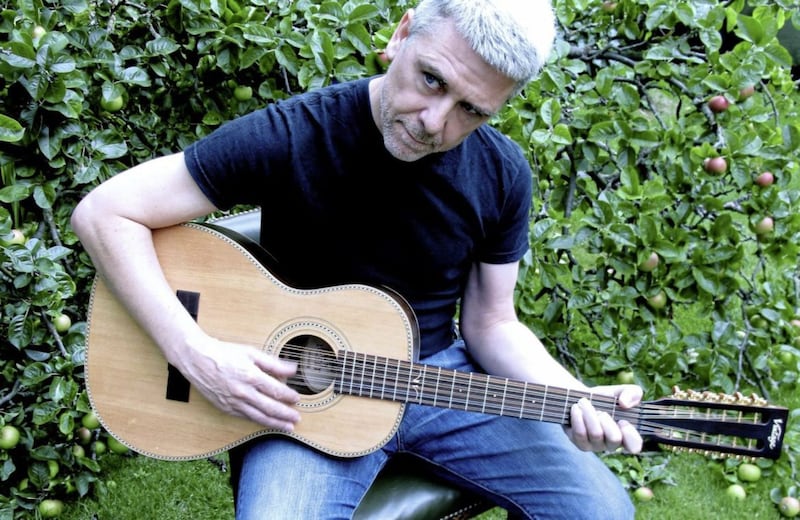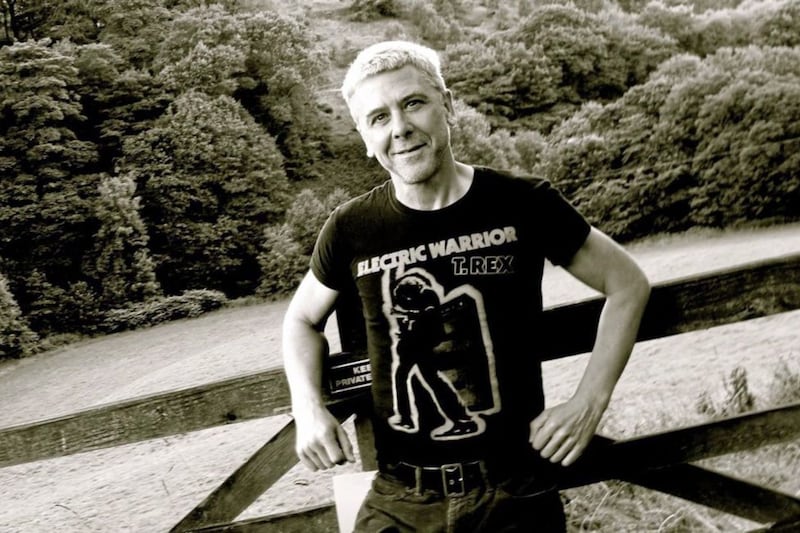GREGORY Gray's unlikely musical journey from boy band, to U2 support act, to solo artist with the moniker 'Mary Cigarettes' saw him described as "one of the great unsung heroes of Irish rock and pop".
Born Paul Lerwill in Portrush in 1959, he enjoyed a happy childhood on the north coast, working in the amusement arcades and later as a DJ in Kelly's nightclub.
His father was an RAF airman and he learned to play guitar during a spell staying in a military camp in Singapore.
Back in Ireland, his first gigs were as a 14-year-old accompanying 'The Singing Farmer' John Watt in the backroom of the Northern Star pub, which his father had bought in Ballymoney.
The pair parted company on good terms but not before some comical scenes when the youngster attempted to introduce the sound of the wah-wah pedal - a present from his mother for his 15th birthday - to the set of old-time waltzes and foxtrots.
Lerwill went to Edinburgh and worked as a DJ there, but his first real foray into the music business was as a member of Rosetta Stone, a boy band created by the manager of the Bay City Rollers.
He was recruited to replace an ex-member of the Scottish chart-toppers and had an enjoyable two years on the road around the world, with the band particularly popular in Japan.
In the early 1980s, at the height of the Troubles, he returned home and formed the four-piece Perfect Crime, with the Dominican nuns in Portstewart providing space to rehearse.
Thanks to Paul's connections they quickly secured a record deal, released singles, and made several television appearances.

During their short life they also played support to U2 on their 'War' tour, as well as to OMD and Eurythmics.
By this time Lerwill had also reinvented himself by changing his name to Gregory Gray.
He went on to release three albums as a solo artist - Think of Swans in 1986, Strong at Broken Places in 1990 and Euroflake in Silverlake in 1995.
While never scoring a big commercial hit, his music was always in demand and had the distinction of being released under three different major record labels.
However, Gray's next reinvention would see him turn his back on the business side of music in favour of freely sharing his art online, through platforms such as YouTube and SoundCloud.
He was based now in Hertfordshire in England with his partner Thomas and wrote his music under the name 'Mary Cigarettes'.
Among his fans was Led Zeppelin guitarist Jimmy Page and BBC DJ Tom Robinson, who raved about his "pure vocal tones and unflinchingly truthful lyrics".
Hot Press music magazine published a feature about Gray in the 1990s headlined ‘The greatest Irish rock story never told’, and deputy editor Stuart Clarke spoke after his death of his "endlessly fascinating career", describing him as "warm and witty as well as supremely talented".
Gray's verdict himself, in one of his regular blogs, was: "My life story must read as a manual in how not to become successful. But it all turned out pretty great in the end."
Gregory Gray died aged 59 after a short illness on April 25.



